Saudi Coalition In Yemen Targets Iran-Affiliated Bases
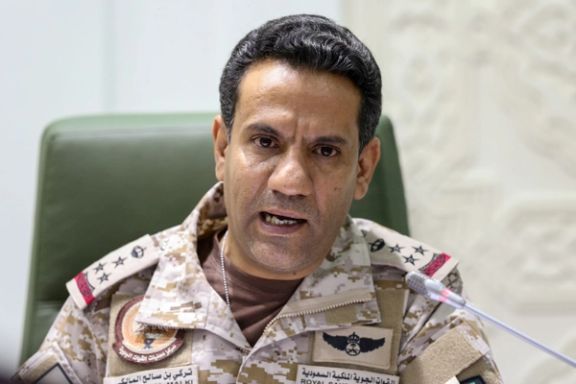
The Saudi-led coalition attacked Iran-affiliated targets in Yemen after intercepting a drone that attempted to attack an airport in Saudi Arabia on Thursday.

The Saudi-led coalition attacked Iran-affiliated targets in Yemen after intercepting a drone that attempted to attack an airport in Saudi Arabia on Thursday.
The coalition was taking "operational measures to deal with the sources of hostile cross-border attacks," Saudi state news agency SPA reported.
The coalition said later it conducted a wide operation on military targets in the Yemeni provinces of Sanaa, Dhamar, Saada, and al-Jawf in response to ballistic and drone threats, Saudi state TV reported.
Workshops and warehouses for ballistic missiles, drones, and communications systems were destroyed, it said.
The coalition added that it targeted what was described as a secret facility for experts from the Iranian Revolutionary Guards and Lebanon's Hezbollah, who it accuses of being involved in hostile attacks against the kingdom.
The military coalition led by Saudi Arabia intervened in Yemen in March 2015 after the Iran-aligned Houthi group ousted the government from the capital Sanaa.
Saudi Arabia says Hezbollah arms, supplies and trains the Houthis. Western countries and UN experts have accused Iran of arming the Houthis.
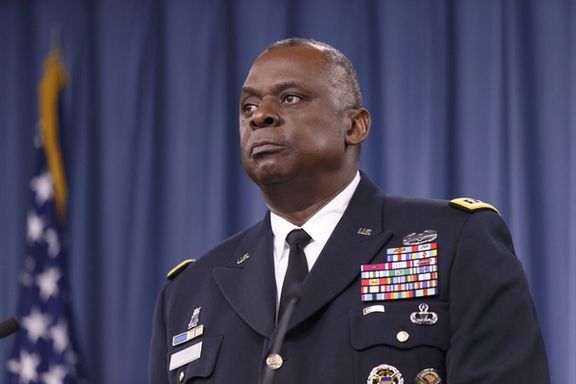
US Defense Secretary Lloyd Austin Wednesday told reporters that Iran presents serious security and regional challenges that go beyond its nuclear program.
Speaking in Washington before his trip to the Middle East, Austin said “This trip comes at a time when Iran is stoking tensions in undermining stability in the region.”
The US defense chief also reiterated the Biden Administration pledge not to allow Iran to acquire nuclear weapons. “We remain deeply committed to preventing Iran from gaining nuclear weapons. No problem in Middle East gets easier solved with a nuclear-armed Iran, and that's why we fully support the president's efforts to achieve a new diplomatic agreement with Iran over its nuclear program.”
But Austin warned the Islamic Republic about threats it poses in the region. “I'm going to be very clear. We will defend ourselves and our partners and our interests against threats from Iran or its proxies,” he maintained.
Multilateral nuclear talks with Iran are scheduled to resume in Vienna on November 29 after Tehran walked away from negotiations in June. Meanwhile it has been enriching more uranium to higher purity, narrowing the window to accumulating enough fissile material for a bomb.
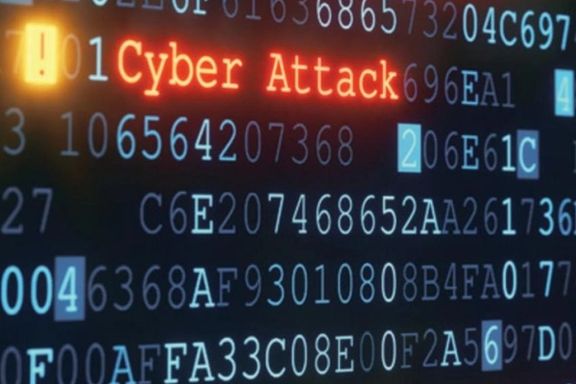
A hacking group "associated with the government of Iran" is launching disruptive-style cyberattacks according to a cybersecurity alert published by the US Homeland Security Department on Wednesday.
The attacks have targeted American companies, including healthcare providers and transportation companies.
CISA, the Federal Bureau of Investigation (FBI), the Australian Cyber Security Centre (ACSC), and the United Kingdom’s National Cyber Security Centre (NCSC) have released a joint Cybersecurity Advisory highlighting ongoing malicious cyber activity” by a group that FBI, CISA, ACSC, and NCSC assess is associated with the government of Iran.
“FBI, CISA, ACSC, and NCSC urge critical infrastructure organizations to apply the recommendations listed in the advisory to mitigate risk of compromise from Iranian government-sponsored cyber actors,” the statement by Cybersecurity and Infrastructure Security Agency has said.
Iranian hacking groups linked with the government of the Islamic Republic are among the world’s top cybersecurity threats, especially in targeting US, Israeli and European targets.
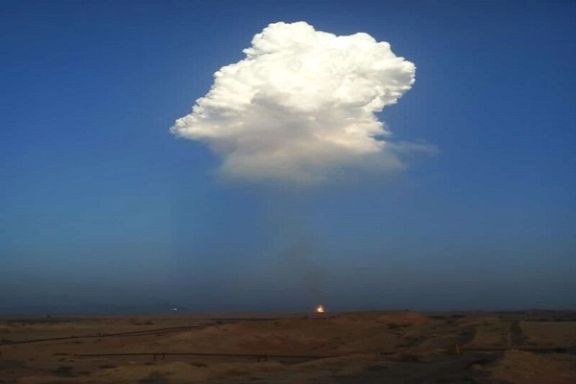
An oil and gas pipeline in Iran’s Khuzestan province exploded and caught fire on Wednesday in what the official media said was the result of metal “fatigue”.
While Iran’s Tasnim news agency affiliated with the Revolutionary Guard said an oil pipeline exploded, Images sent by local residents show huge, ferocious flames shooting into the sky, in what seems more likely to have been a gas pipeline fire.
A tweet from the scene by an account tagged as “Iranworkers” also mentions a gas pipeline explosion, the second in less than a month in the same area.
Residents in a village nearby also reported a strong initial explosion that felt “like an earthquake”.
There have been many explosions and fires in Iran’s military and industrial site since mid-2020, with authorities not giving a full explanation in many instances. However, they have blamed Israel for a series of spectacular sabotage attacks on nuclear facilities, including two explosions at Natanz uranium enrichment center.
The oil and gas industries have also experienced many incidents of exploding pipelines and refineries where large fires ignited.
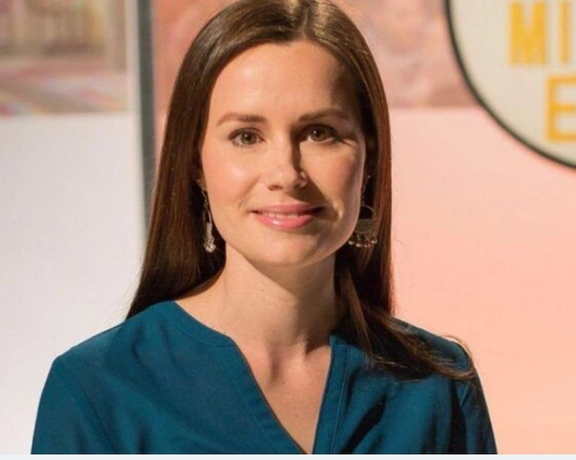
Kylie Moore-Gilbert, an academic previously jailed in Iran, has told the British government it should repay its £400 million debt to Iran only as humanitarian aid.
Paying the debt – due over Britain’s failure to supply military hardware sold to Iran in the 1970s – has become controversial in British politics. Richard Ratcliffe alleges his wife Nazanin Zaghari-Ratcliffe is forbidden from leaving Iran to pressure London to pay, and while some politicians and clerics argue Britain should do so, others, notably on the right wing of the ruling Conservative Party, argue it should not.
In a series of tweets Wednesday, Moore-Gilbert, a lecturer in Islamic Studies at Melbourne University exchanged by Iran last year in a prisoner swap with three Iranian prisoners in Thailand two of whom had been convicted in connection with a bombing plot in Bangkok in 2012, said the UK should not pay the debt but rather decide itself in what form to transfer “humanitarian aid” to Iran.
Tehran won its case over the debt in international arbitration in 2001, but the UK has sat on the money ever since.
"An international court of arbitration has ruled that this debt must be paid," Moore-Gilbert wrote. “But to the Iranian government, not the IRGC [Revolutionary Guards]. “It is the Iranian people's money, and should go to the Iranian people, who are suffering greatly from economic catastrophe and the disastrous impact of Covid.”
RAF plane to Iran
The academic seized on a statement by Jeremy Hunt, former British foreign minister, in Tuesday’s parliamentary debate on the Zaghari-Ratcliffe case, that the UK should immediately pay “if necessary, by getting an RAF [British air force] plane to fly gold to Tehran.”
"Is anyone in any doubt where this gold will end up? Who it will benefit?" Moore-Gilbert tweeted. "What is certain is that £400m will only incentivise the IRGC to take more hostages."
Moore-Gilbert wrote that Zaghari-Ratcliffe, a project manager for Thomson Reuters Foundation, was a hostage, as were other dual citizens including British-Iranian businessman Anoosheh Ashoori and labor activist Mehran Raoof, American-Iranian environmentalist Morad Tahbaz, journalist Jason Rezaian, and Australian backpackers Jolie King and Mark Firkin. Rezaian, King and Firkin have all been released: the backpackers were held for a few months after reportedly flying an unlicensed drone.
Sadiq Khan, London mayor, and Tulip Siddiq, Zaghari-Ratcliffe's member of parliament, in a joint statement before the parliamentary debate said that Prime Minister Boris Johnsonshould take “stronger action” over Zaghari-Ratcliffe: “We believe that this innocent woman has suffered enough. Though responsibility for Nazanin’s predicament lies with Iran, there is more that the UK Government could be doing to help her, and we are making a personal plea to the Prime Minister to take stronger action to try to bring her home.”
Zaghari-Ratcliffe, now 42, was arrested in 2016, convicted in a trial without due process of law of working to overthrow the government and sentenced to five years imprisonment. After being paroled early in 2020, she was charged with new offences and has been refused permission to leave the country.
UN experts and human rights organizations have said Iran imprisons foreigners and dual nationals to use them as bargaining chips against other countries.
Ratcliffe, her husband, has just ended a three-week hunger strike outside the UK Foreign Office. Ratcliffe listened to parliamentary debate Tuesday afternoon from hospital where he is undergoing checks and treatment after his fast.
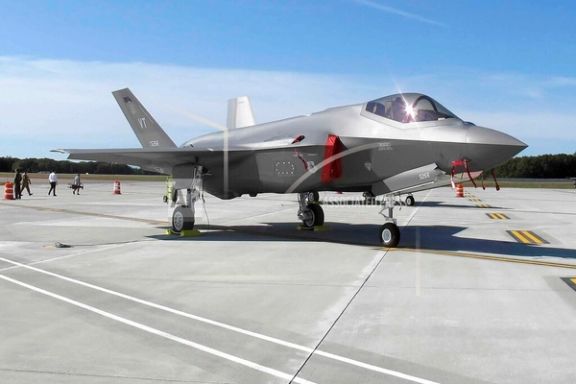
The US remains "fully committed" to a proposed sale of F-35 stealth fighter jets to the United Arab Emirates a senior US official has told the Associated Press.
Despite the Biden administration slowing down the deal, a senior American official overseeing arms exports has told The Associated Press on Tuesday that Washington remains committed.
Mira Resnick, a deputy US assistant secretary of state in the Biden administration, also told the AP at the Dubai Air Show that Gulf Arab partners aren't looking to purchase weapons from Russia as a hedge over American concerns about human rights in the region.
That's even as a high-level Russian delegation met Tuesday with Abu Dhabi's powerful crown prince, Sheikh Mohammed bin Zayed Al Nahyan, at an air show prominently featuring Moscow's competitor to the F-35, the Sukhoi Su-75 Checkmate.
"The F-35 is already in this region, whether it's Israelis flying the F-35, whether it's American F-35," Resnick said. "We would like the UAE to be able to operate the F-35 in a way that (they) can be our security partners and to deter threats, including from Iran."
The proposed sale of 50 F-35s came at the end of President Donald Trump's administration, rising out of a deal that saw the UAE recognize Israel.
The $23 billion sale also included armed drones and other defense equipment sought by the Emirates, a hereditarily ruled federation of seven sheikhdoms also home to Dubai.
After President Joe Biden came into office, his new administration put the arms sale and others on hold, in part over criticism of the UAE and Saudi Arabia over their yearslong war in Yemen, which has sparked the world's worst humanitarian crisis and rages on today.
Only Israel flies the F-35 in the region, part of its so-called "qualitative edge" granted by America after Israel fought several wars against its Arab neighbors since its founding.
Resnick said she'd heard no concerns from Israel or other allies over the F-35 sale to the Emirates, saying "We are fully committed to the F-35 and transferring the F-35, which is a game changer for the Emiratis."
"We are working with them as we speak to make sure that there are clarifications to the various assurances that were made to the previous administration."
Biden himself pledged during his campaign to make Saudi Crown Prince Mohammed bin Salman a "pariah" after US intelligence agencies said they believe he ordered the 2018 killing and dismemberment of Washington Post columnist Jamal Khashoggi.
"We have worked with with Saudi Arabia to make sure that they are able to defend themselves. We know that there are complications in... this relationship and in relationships around the globe," Resnick said.
"But we continue to reinvest and make sure that they can invest in their own defense."
Russia similarly has sought to make an impression at the show, flying a new attack helicopter and showing off the Checkmate fighter jet in a music-video-style presentation to journalists on the tarmac.
But Resnick dismissed that effort, saying "we have not seen any strategic competitor be able to fill the kind of role that we play here in the region."
Report by AP